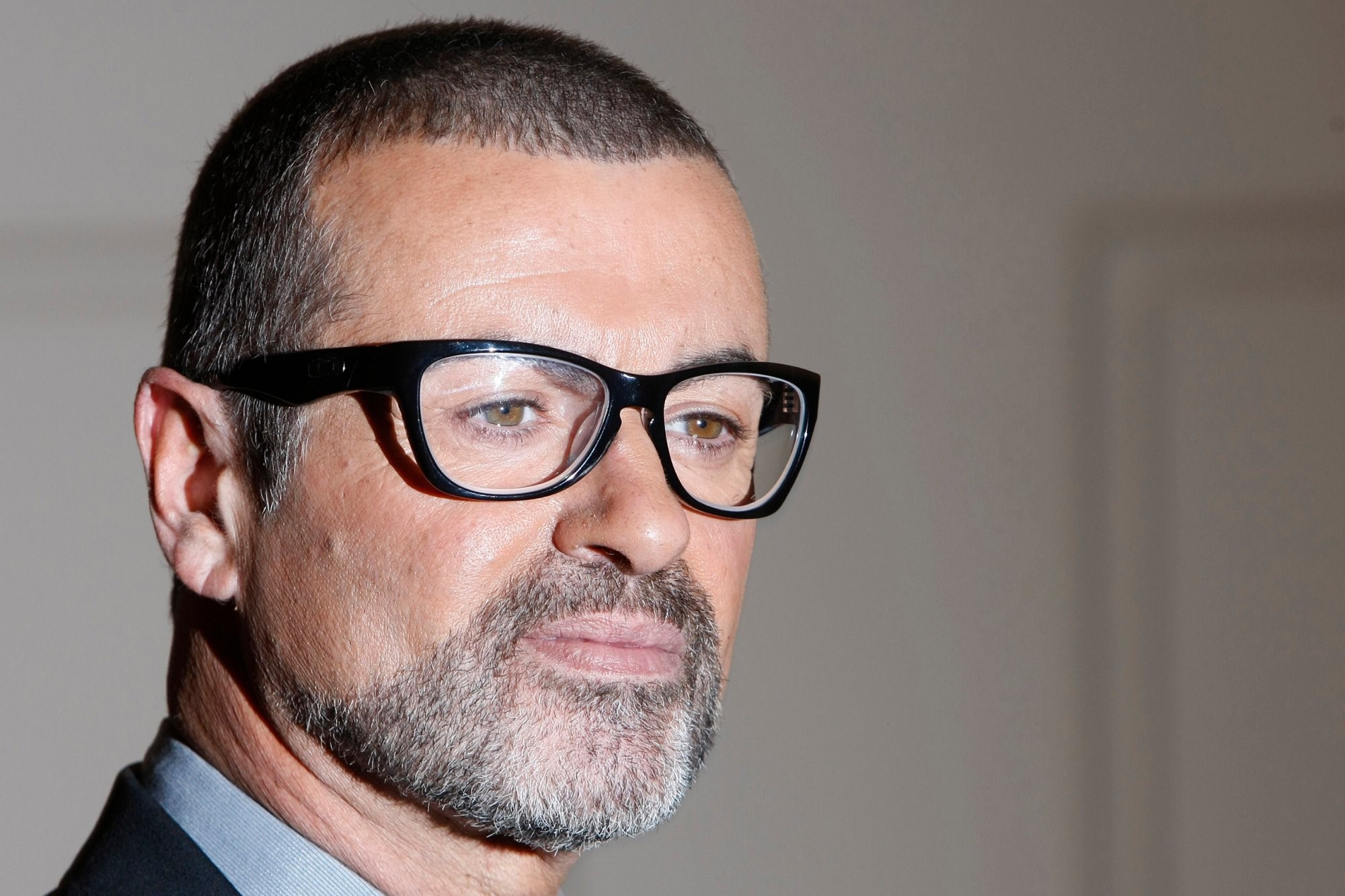Discover The Legacy Of George Michael: A Musical Icon
George Michael, a name synonymous with soulful melodies and chart-topping hits, remains a timeless figure in the world of music. From his early days in Wham! to his illustrious solo career, George Michael captivated audiences worldwide with his unique voice and heartfelt lyrics. His ability to blend genres like pop, soul, and R&B set him apart as a true innovator in the music industry. Beyond his musical talent, George Michael's charisma and authenticity resonated with fans, making him a beloved cultural icon.
His journey wasn’t just about fame and accolades; it was also about breaking barriers and staying true to himself. George Michael's openness about his personal life, including his sexuality, inspired countless individuals to embrace their identities. Even today, his music continues to evoke nostalgia and emotion, reminding us of the power of art to connect people across generations. Whether you’re a lifelong fan or a newcomer to his work, George Michael's legacy offers something for everyone to cherish.
As we delve deeper into his life and career, we’ll uncover the milestones that shaped his journey, the unforgettable songs that defined an era, and the lasting impact he left on pop culture. From his early beginnings to his rise as a global superstar, George Michael’s story is one of resilience, creativity, and unwavering passion for music. So, let’s take a closer look at the man behind the music and discover what made George Michael a true legend.
Read also:Exploring The Charm And Legacy Of Katty Kay House A Comprehensive Guide
Table of Contents
- Biography of George Michael
- Personal Details and Bio Data
- What Made George Michael's Musical Journey Unique?
- The Wham! Era: How Did It Shape His Career?
- George Michael's Solo Career: A New Chapter
- What Are George Michael's Most Iconic Hits?
- How Did George Michael Influence Pop Culture?
- Why Does George Michael's Legacy Endure?
- Frequently Asked Questions About George Michael
Biography of George Michael
George Michael, born Georgios Kyriacos Panayiotou on June 25, 1963, in East Finchley, London, was a British singer, songwriter, and record producer. Raised in a family of Greek Cypriot descent, he grew up immersed in music, which became the cornerstone of his life. His early exposure to a variety of genres, from rock to soul, laid the foundation for his eclectic musical style. By the age of 19, George Michael had already begun making waves in the music industry as part of the duo Wham!, alongside his childhood friend Andrew Ridgeley. Their infectious energy and catchy tunes quickly propelled them to international stardom.
After achieving massive success with Wham!, George Michael embarked on a solo career that solidified his status as a musical genius. His debut solo album, *Faith*, released in 1987, was a commercial and critical triumph, earning him multiple awards, including a Grammy. Known for his smooth vocals, introspective lyrics, and genre-defying sound, George Michael became a household name. Over the years, he released several critically acclaimed albums, including *Listen Without Prejudice Vol. 1* and *Older*, which showcased his evolution as an artist. Despite facing personal and professional challenges, George Michael remained a prominent figure in the music world until his untimely passing on December 25, 2016.
His contributions to music were not just limited to his artistry; he was also a philanthropist and advocate for various causes, including LGBTQ+ rights and HIV/AIDS awareness. George Michael’s life and career were marked by both triumphs and tribulations, but his enduring legacy continues to inspire new generations of artists and fans alike.
Personal Details and Bio Data
| Full Name | Georgios Kyriacos Panayiotou |
|---|---|
| Date of Birth | June 25, 1963 |
| Place of Birth | East Finchley, London, England |
| Date of Death | December 25, 2016 |
| Occupation | Singer, Songwriter, Record Producer |
| Genres | Pop, Soul, R&B |
| Years Active | 1981–2016 |
| Notable Albums | Faith, Listen Without Prejudice Vol. 1, Older |
| Spouse | Kenny Goss (Partner from 1996–2011) |
| Awards | Grammy Awards, Brit Awards, MTV Video Music Awards |
What Made George Michael's Musical Journey Unique?
George Michael’s musical journey was a blend of raw talent, innovation, and an unyielding commitment to authenticity. Unlike many artists who stick to a single genre, George Michael fearlessly experimented with various styles, seamlessly fusing pop, soul, R&B, and even jazz into his music. This versatility not only showcased his vocal prowess but also allowed him to connect with a diverse audience. His ability to craft deeply personal yet universally relatable lyrics set him apart from his contemporaries. Songs like “Careless Whisper” and “Father Figure” are perfect examples of how he infused emotional depth into catchy melodies, creating timeless classics that resonate even today.
Another defining aspect of George Michael’s career was his insistence on creative control. After achieving monumental success with Wham!, he could have easily continued down the same path. Instead, he chose to step out of his comfort zone and explore new artistic directions. His solo debut album, *Faith*, was a bold statement of independence, featuring a more mature sound and themes that reflected his personal growth. The album’s eponymous single, “Faith,” became an anthem of the late 1980s, blending rock and pop influences with a rebellious edge. This willingness to evolve and take risks ensured that his music remained fresh and relevant throughout his career.
Moreover, George Michael’s journey was marked by his resilience in the face of adversity. He navigated public scrutiny, legal battles, and personal struggles with grace and dignity. Despite these challenges, he never compromised his artistic integrity. His later works, such as *Older*, demonstrated a deeper introspection and sophistication, proving that his talent only grew with time. George Michael’s musical journey was not just about creating hits; it was about leaving a lasting impact on the industry and inspiring future generations of musicians.
Read also:Who Is Cameron Wolfe Discovering The Inspiring Journey Of A Rising Star
Why Did George Michael Choose to Experiment with Different Genres?
One of the reasons George Michael chose to experiment with different genres was his desire to break free from the constraints of pop music. While Wham! had established him as a pop sensation, George Michael yearned to explore the emotional and sonic possibilities of other genres. By incorporating elements of soul, R&B, and jazz, he was able to express a wider range of emotions and tell more nuanced stories through his music. This experimentation also allowed him to pay homage to his musical influences, such as Stevie Wonder and Aretha Franklin, while carving out his own unique identity as an artist.
The Wham! Era: How Did It Shape His Career?
The Wham! era was the foundation of George Michael’s illustrious career, shaping not only his musical style but also his public persona. Formed in 1981, Wham! quickly rose to fame with their infectious energy and relatable lyrics. Hits like “Wake Me Up Before You Go-Go,” “Last Christmas,” and “Club Tropicana” became anthems of the 1980s, capturing the carefree spirit of the decade. These songs showcased George Michael’s knack for crafting catchy hooks and memorable melodies, skills that would later define his solo work. However, Wham! was more than just a pop sensation; it was a platform for George Michael to hone his songwriting abilities and establish himself as a formidable talent in the music industry.
Beyond the music, the Wham! era also played a significant role in shaping George Michael’s image as a performer. With his boyish charm and magnetic stage presence, he became a teen idol, adored by fans around the world. The duo’s flamboyant fashion sense and playful personas added to their appeal, making them a cultural phenomenon. Yet, despite the success, George Michael began to feel constrained by the bubblegum pop label that Wham! had been assigned. This dissatisfaction ultimately led to the duo’s breakup in 1986, paving the way for George Michael to embark on a solo career that would allow him greater creative freedom.
What Lessons Did George Michael Learn During the Wham! Era?
The Wham! era taught George Michael invaluable lessons about the music industry, collaboration, and the importance of staying true to oneself. Working closely with Andrew Ridgeley, he learned the dynamics of partnership and the value of shared vision. However, he also realized the limitations of being part of a duo, especially when it came to artistic expression. This experience fueled his determination to take full control of his music in the future. Additionally, the pressures of fame during the Wham! years gave George Michael a deeper understanding of the media’s influence and the need to protect his personal life. These lessons became the building blocks of his solo career, guiding him as he navigated the complexities of the entertainment world.
George Michael's Solo Career: A New Chapter
George Michael’s transition to a solo career marked a pivotal moment in his life and career, allowing him to fully express his artistic vision without compromise. The release of his debut solo album, *Faith*, in 1987 was a bold declaration of independence and creativity. Unlike the upbeat, carefree vibe of Wham!, *Faith* showcased a more mature and edgy side of George Michael. The album’s title track became an instant hit, blending rock-inspired guitar riffs with pop sensibilities and a confident swagger that resonated with audiences worldwide. Songs like “Father Figure” and “One More Try” further demonstrated his ability to craft emotionally charged ballads that explored themes of love, vulnerability, and self-discovery.
The success of *Faith* catapulted George Michael to new heights, earning him critical acclaim and numerous awards, including a Grammy for Album of the Year. However, his solo career was not without its challenges. The intense media scrutiny and pressure to maintain his superstar status took a toll on his personal life. Despite these obstacles, George Michael continued to push boundaries with his music. His follow-up album, *Listen Without Prejudice Vol. 1*, marked a departure from the polished production of *Faith*. Instead, it featured a more stripped-down, introspective sound, reflecting his desire to be taken seriously as an artist. Tracks like “Praying for Time” and “Freedom! ’90” became iconic, showcasing his lyrical depth and vocal versatility.
Throughout his solo career, George Michael remained committed to using his platform for meaningful causes. He was a vocal advocate for LGBTQ+ rights and donated millions to charity, often anonymously. His music also became a vehicle for social commentary, addressing issues like inequality and the AIDS crisis. By the time he released *Older* in 1996, George Michael had cemented his status as one of the most influential artists of his generation. The album’s sophisticated sound and deeply personal lyrics further solidified his legacy, proving that his talent only grew with time.
How Did George Michael’s Solo Career Reflect His Growth as an Artist?
George Michael’s solo career was a testament to his growth as an artist, both musically and personally. Each album he released represented a new chapter in his journey, reflecting his evolving perspectives and experiences. From the youthful exuberance of *Faith* to the introspective maturity of *Older*, his music mirrored his own transformation. By taking creative risks and exploring new genres, George Michael demonstrated his willingness to evolve and adapt. This growth not only resonated with his fans but also inspired countless artists who followed in his footsteps.
What Are George Michael's Most Iconic Hits?
George Michael’s discography is brimming with iconic hits that have become timeless classics. These songs not only defined his career but also left
Who Is Kendall Penny TS? Discover The Untold Story Behind The Rising Star
Chicago Scanner: Your Ultimate Guide To Real-Time Emergency Updates
Who Is Hal Weatherman NC? The Ultimate Guide To His Life, Career, And Achievements

Michael 4

Michael Desktop Images